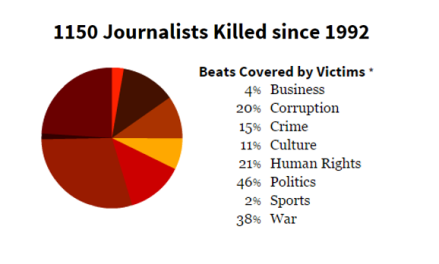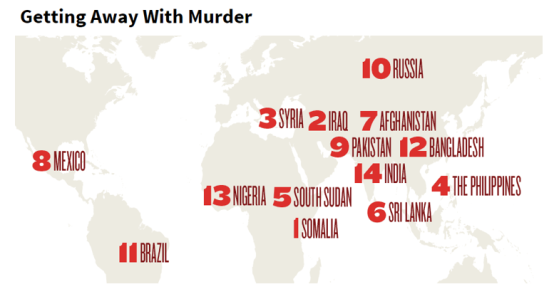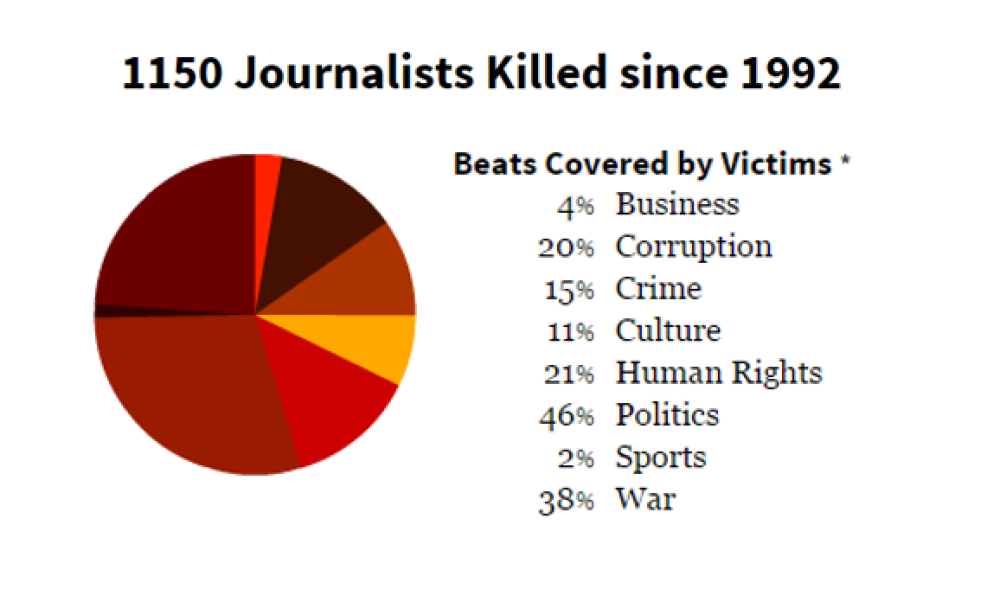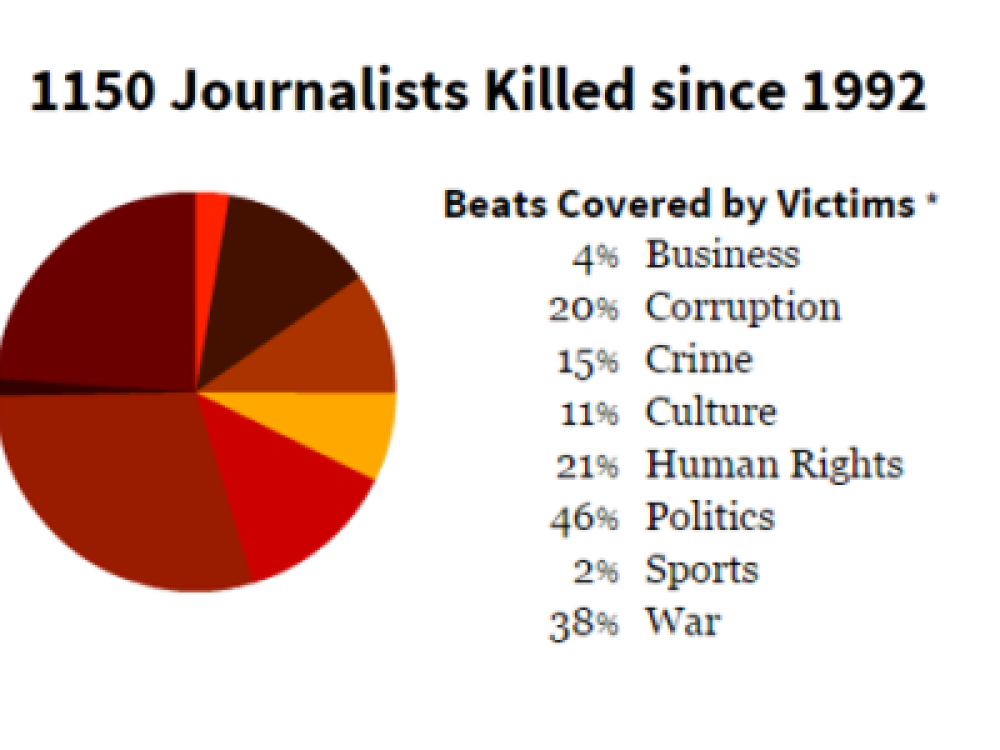To mark the International Day to End Impunity for Crimes against Journalists on November 2, UNESCO launched a special report World Trends in Freedom of Expression and Media Development. This follows the October publication of the Committee to Protect Journalists’ 2015 Global Impunity Index.
The figures from these reports are stark. Since 2006, over 700 journalists have been killed in the pursuit of their work which makes an average of one death every five days. Less than one in ten of these cases has been solved. The vast majority of journalists killed since 1992 are local news workers and politics, rather than war or human rights, remains the most dangerous subject for journalists to cover.
 Source: Committee to Protect Journalists 2015
Source: Committee to Protect Journalists 2015
Somalia has now overtaken Iraq as the country where the murder of journalists is most likely to go unpunished. At least one journalist has been murdered in Somalia every year over the past decade - often targeted by Al-Shabaab militants - and the authorities have been unable or unwilling to investigate. Ambushes on journalists in South Sudan and a wave of violence against bloggers in Bangladesh have placed both countries on the Index.

Source: Committee to Protect Journalists 2015
Deteriorating Worldwide Conditions for Press Freedom
As the 2015 World Press Freedom Index highlights, there has been a drastic global decline in freedom of information with two-thirds of the 180 countries surveyed by Reporters Without Borders performing less well than in the previous year.
Reporters Without Borders identify seven key themes in the current global picture:
- The political use of blasphemy laws and religious censorship
- Increased violence against news media workers covering demonstrations
- The erosion of the European model of media freedom
- The use of ‘national security’ as spurious grounds for censorship
- Efforts to control media as a war propaganda tool
- Violence and intimidation by non-state actors
- Intensified censorship by despotic regimes
The Erosion of the European Model: There is a significant gulf in media freedom across the EU with member states ranked from 1st (Finland) to 106th (Bulgaria) in the 2015 Index. Greece, Bulgaria, Italy and Luxembourg are highlighted as regions in which journalists are targeted by state and non-state actors.
Media censorship in Viktor Orbán’s Hungary has been a growing cause for concern. A planned amendment to the country’s security law - which would see intelligence agents embedded in newsrooms - was retracted yesterday following protest by the Hungarian Publishers' Association. Since Orbán’s nationalist Fidesz party took power in 2010, it has been accused of sustained political interference in the media. Although the European Commission has twice raised the possibility of sanctioning the Hungarian government, the lack of action has highlighted the weaknesses in EU mechanisms to protect media freedom.
"Government interference in the media is a reality in many European Union countries.
It is facilitated by the concentration of media ownership in ever fewer hands and a lack of transparency about ownership. "
Reporters Without Borders
Cover Image Source: UN Human Rights
Subscribe to FuJo's Newsletter.
Register (free) for the News Impact Summit on December 8.





